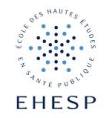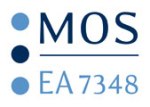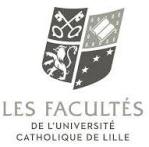Lille Economie Management (UMR CNRS 9221), IAE Lille, EHESP (IDM, EA 7348 MOS), UCL and IESEG
organize at
IAE Lille
on
17th June 2016
4th Health Marketing International Day
in patronage of:
Association Française du Marketing (AFM) and Association de Recherche Appliquée au Management des Organisations de Santé (ARAMOS),
and
in partnership with:
Fédération Hospitalière de France (FHF), Strat Adviser, Master 2 - MESS, École de Gestion - Université du Québec à Trois-Rivières and Adem Santé.
Call for papers
Deadline for submissions: 18th April 2016
The research topic that will be addressed during 4th Health Marketing International Day
is:
Social Marketing
Social Marketing is defined as « the application of commercial marketing concepts, knowledge and techniques to analyse, implement and assess programs which aim is to modify the behaviours of target populations, in order to improve their well being and the society’s welfare ». After a slow start in the early 70’s, the aim and tools used in social marketing are nowadays increasingly adopted by various organizations that view them clearly as relevant to implement prevention programs (communication campaign, segmentation and target analysis, health behaviours competitive analysis, etc.). That is for instance the case of the Centres for Disease Control and Prevention (CDC) in the USA and the National Social Marketing Centre (NSMC) from the United-Kingdom created in 2007. In France however, the appropriation of social marketing by healthcare providers is still feeble. If the social marketing approach is neither much known nor much exploited on the field, the report from the national agency for public health delivered to the French health minister in 2015 does however recommend “the adoption of a social marketing strategy (or health marketing strategy). That suggests therefore for the future the possible increase of social marketing practices on the field. |
Regarding the research in social marketing, it has increased in the 70’s and the 80’s at the instigation of academics such as Philip Kotler, Alan R. Andreasen or Gerard Hastings. An increasing number of articles have been published on the topic of social marketing. Additionally several academic journals and conferences have been dedicated since the years 2000 to the fostering of social marketing such as the Journal of Social Marketing (created in 2011) or the World Social Marketing Conference which third edition took place in Australia in 2015. France is not left out of that movement as several French academic journals publish special issues dedicated to social marketing and health management (e.g., Recherche et Applications en Marketing in 2015, the Journal of Health Care Management and Economics in 2014). Moreover since 2010, the French marketing association has developed workshops devoted to social marketing.
In this context, the fourth Health Marketing International Day will be focusing on social marketing.
Some of the main topics that will be dealt with during this International Health Marketing Day are as follows (non-exhaustive list):
- What are the parameters of and specifics about social marketing?
-
Is there a significant gap between the current practice of social marketing and what it could (or should) be?
-
What are the challenges for health organisations to fully integrate social marketing practices, to build improved and innovative prevention programs and thus increase their global effectiveness?
-
How can the effectiveness of prevention-based communication campaigns be improved through social marketing?
-
What is the role of ethics in social marketing?
-
What about health promotion and social marketing?
-
Etc.
Aims of the 4th International Health Marketing Day
In the manner of the previous events, the 4th day addresses the need for an in-depth relevant reflexion on the health marketing and social marketing fields, in order to determine the stakes, parameters, perspectives and limits of an ever changing context at multiple levels: globalization and competition, legislation and regulation, social and societal issues.
Interdisciplinary in nature, this conference favours debate and exchange between researchers. Moreover it aims at creating close interactions and dialog with professionals from NGOs, public health institutes and health organisations during workshops focused on current realities brought forward by various contributors.
| |
 Introduction
Introduction PDF: Call for papers HMID - IV
PDF: Call for papers HMID - IV 






 Our partners
Our partners









